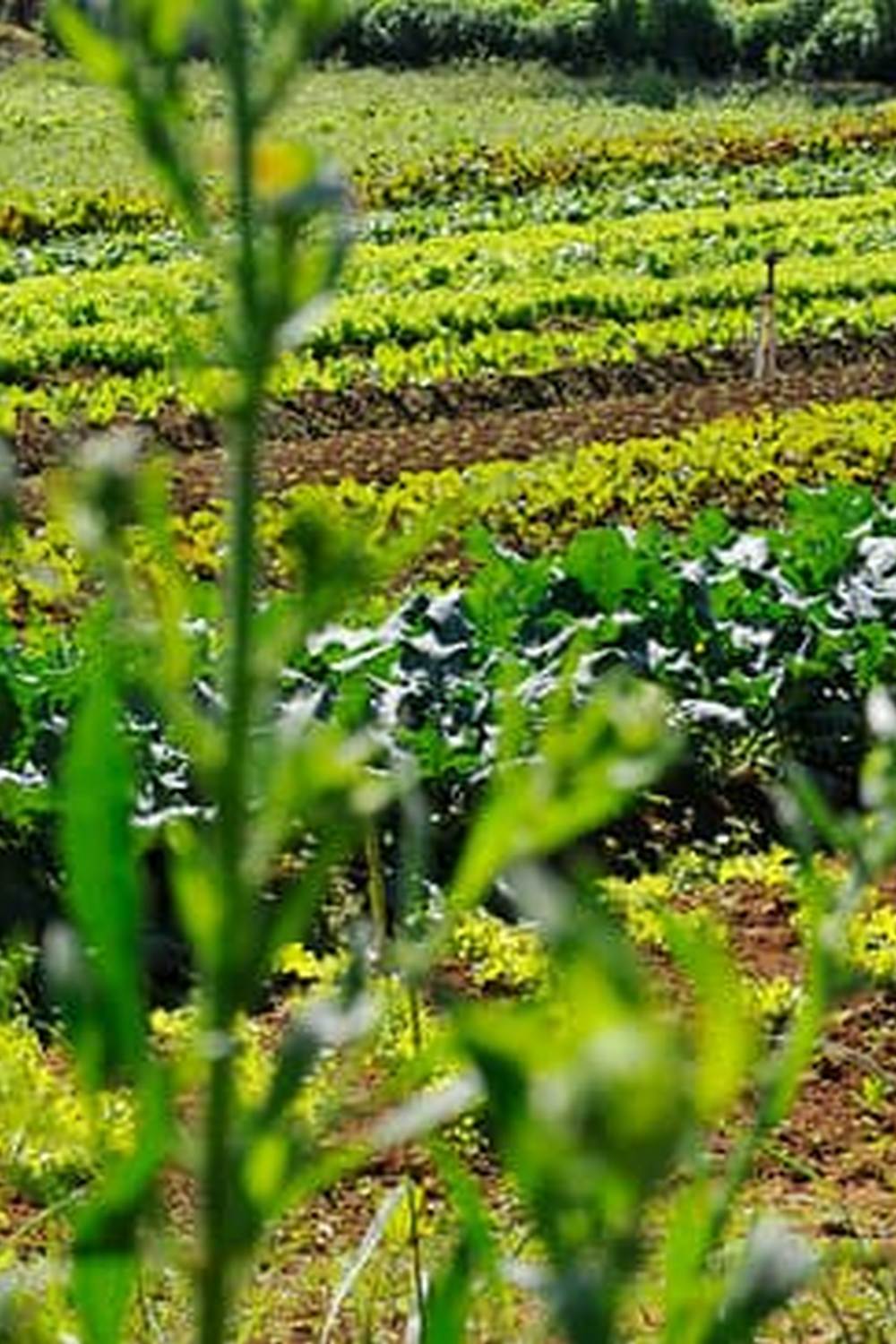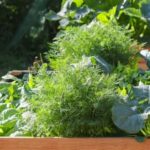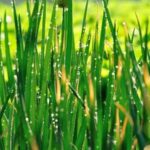Moss has long been a subject of both fascination and frustration for gardeners. The question “is moss bad for vegetable gardens?” is a common one, and the answer is not as straightforward as it may seem.
While some may view moss as simply a nuisance to be removed, others see it as a natural and beneficial part of their garden ecosystem. In this article, we will explore the presence of moss in vegetable gardens, its effects on plant growth, and how to manage it effectively.
When it comes to moss in vegetable gardens, there are various types commonly found, each with its own unique characteristics and growth habits. Understanding the different varieties of moss can provide insight into how they impact the overall health and productivity of your garden.
The presence of moss in vegetable gardens can have both positive and negative effects on plant growth. While it can indicate certain soil conditions or moisture levels that may be beneficial for some plants, excessive moss cover can also compete with vegetable crops for essential nutrients and water. It’s important to weigh the pros and cons of having moss in your garden before deciding on the best course of action.
Types of Moss Commonly Found in Vegetable Gardens
Moss is a common sight in many vegetable gardens, and there are several types that are commonly found in these environments. One of the most prevalent types is sphagnum moss, which is often found in damp and shady areas.
This type of moss can be beneficial for retaining moisture in the soil, but it can also create a dense mat that may hinder the growth of certain vegetable plants. Another common type of moss found in vegetable gardens is carpet moss, which is known for its low-growing nature and ability to form a thick carpet-like cover over the soil.
Another type of moss that is often found in vegetable gardens is rock cap moss. This type of moss thrives in dry and rocky areas, and while it may not have a negative impact on vegetable plants, it can compete with them for nutrients.
Additionally, feather moss is another common type that can be found in vegetable gardens. Feather moss typically grows in dense tufts and has a feathery appearance, adding aesthetic appeal to the garden but potentially obstructing the growth of vegetables if left unattended.
In summary, there are several types of moss commonly found in vegetable gardens – sphagnum moss, carpet moss, rock cap moss, and feather moss. While some types may have benefits such as moisture retention and aesthetic appeal, they can also pose challenges for vegetable plant growth due to their ability to create dense mats or compete with plants for nutrients.
| Types of Moss | Common Characteristics |
|---|---|
| Sphagnum Moss | Commonly found in damp and shady areas; retains moisture but creates dense mat |
| Carpet Moss | Low-growing and forms thick carpet-like cover over soil |
| Rock Cap Moss | Thrives in dry and rocky areas; competes with plants for nutrients |
| Feather Moss | Grows in dense tufts; has feathery appearance but may obstruct plant growth |
The Effects of Moss on Vegetable Gardens
Moss is a common sight in many vegetable gardens, and its presence can have both positive and negative effects on the garden and its crops. One of the main concerns that gardeners have is whether moss is bad for vegetable gardens. While moss can create a lush, green carpet-like appearance in the garden, it can also have some detrimental effects on vegetable plants.
One effect of moss in vegetable gardens is its ability to retain moisture. This can be beneficial during dry spells as it helps to keep the soil underneath moist. However, an excess of moisture retained by moss can lead to waterlogged soil, which is not suitable for most vegetable plants. Furthermore, moss can also compete with vegetable plants for essential nutrients and sunlight, potentially affecting their growth and productivity.
In addition to impacting the growth of vegetable plants, moss can also affect the overall health of the garden. Its dense matting nature can hinder air circulation and prevent proper drainage in the soil, leading to potential issues such as root rot and other fungal diseases. Therefore, while moss may add aesthetic appeal to a vegetable garden, it is important for gardeners to carefully consider its effects on their crops and take appropriate measures to manage its presence.
| Effects of Moss | Impact |
|---|---|
| Retains moisture | Beneficial during dry spells but may lead to waterlogged soil |
| Competes for nutrients and sunlight | Affects growth and productivity of vegetable plants |
| Hinders air circulation and drainage | Potential issues such as root rot and fungal diseases |
Pros and Cons of Having Moss in Vegetable Gardens
Moss in vegetable gardens can be a topic of debate among gardeners, as it brings both advantages and disadvantages to the garden environment. Understanding the pros and cons of having moss in vegetable gardens can help you make informed decisions about its presence.
Pros of Having Moss in Vegetable Gardens
Moss can actually provide some benefits to your vegetable garden. One of the main advantages is its ability to retain moisture. Moss acts like a sponge, absorbing water and helping to keep the soil around your vegetable plants moist, which is particularly beneficial during dry spells. Additionally, moss can act as a natural fertilizer, enriching the soil with nutrients as it decomposes. Its unique texture and appearance also add aesthetic appeal to your garden, creating a charming and natural look.
Cons of Having Moss in Vegetable Gardens
On the other hand, there are some drawbacks to having moss in your vegetable garden. One significant issue is that an overabundance of moss can potentially choke out other plants or vegetables, competing for valuable nutrients and space. Additionally, excessive moss growth can indicate poor drainage or compacted soil, which may not be ideal for your vegetables. Lastly, certain types of moss may harbor pests or diseases that could negatively impact the overall health of your vegetable garden.
Understanding the potential advantages and disadvantages of having moss in your vegetable garden is crucial for making informed decisions regarding its maintenance and presence alongside your vegetables. By carefully weighing these factors, you can determine the best course of action for managing moss in your specific garden environment.
How to Remove Moss From Vegetable Gardens
It is common for vegetable gardens to develop a layer of moss over time, especially in damp and shaded areas. While some gardeners may find the moss aesthetically pleasing, others may be concerned about its impact on their vegetable plants. In this section, we will discuss effective methods for removing moss from vegetable gardens.
There are several methods that can be used to effectively remove moss from vegetable gardens. These include:
- Manual removal: One of the most straightforward methods for removing moss is to manually pull it up and remove it by hand. This can be done using a handheld tool or simply by pulling the moss up with gloved hands.
- Chemical treatments: There are a variety of chemical products available that are specifically designed to kill and remove moss from garden surfaces. These products typically need to be diluted with water and sprayed directly onto the affected areas.
- Physical removal: Using methods such as scraping or power washing can also effectively remove moss from hard surfaces such as paths or driveways within the vegetable garden.
It is important to consider the impact of each removal method on your specific vegetable garden and the surrounding environment. Some methods may be more appropriate than others depending on factors such as the scale of the moss infestation, the proximity of edible plants, and any potential harm to beneficial organisms.
In addition to removing existing moss, it is also important to address the underlying conditions that may be promoting its growth in the first place. This can include improving drainage, increasing sunlight exposure, adjusting soil pH levels, and reducing excessive moisture buildup in order to prevent future moss growth from occurring.
Preventing Moss Growth in Vegetable Gardens
Moss can be a beautiful addition to a garden, but it can also be a nuisance when it starts to take over vegetable beds. Here are some tips on preventing moss growth in your vegetable garden:
1. Improve drainage: Moss thrives in areas with poor drainage, so one of the most effective ways to prevent its growth is to improve the drainage in your garden. This can be done by adding organic matter to the soil, creating raised beds, or installing drainage pipes if necessary.
2. Increase sunlight exposure: Moss prefers shady and damp environments, so increasing the amount of sunlight that reaches your vegetable beds can help prevent its growth. Trim back any trees or shrubs that may be casting too much shade over your garden, and consider pruning back neighboring vegetation to allow more sunlight to reach the soil.
3. Adjust the pH balance of the soil: Moss tends to thrive in acidic soil, so adjusting the pH balance can discourage its growth. Conduct a soil test to determine the current pH levels and then add lime to raise the pH if necessary.
By implementing these preventative measures, you can help keep moss from taking over your vegetable garden, allowing your vegetables to thrive without competition from this invasive plant.
Utilizing Moss in Vegetable Gardens for Added Benefits
Improving Soil Quality
Moss is not just a nuisance in vegetable gardens; it can actually be beneficial when utilized correctly. One of the main benefits of moss in vegetable gardens is its ability to improve soil quality. Moss acts as a natural mulch, protecting the soil from erosion and retaining moisture. As it breaks down, it also adds organic matter to the soil, improving its structure and fertility.
Providing Habitat for Beneficial Organisms
Moss also provides a habitat for beneficial organisms such as earthworms, which help aerate the soil and break down organic matter. These organisms contribute to the overall health of the vegetable garden ecosystem, creating a more balanced and sustainable environment for plant growth.
Creating Aesthetic Appeal
In addition to its practical benefits, moss can also enhance the aesthetic appeal of vegetable gardens. Its lush green color and soft texture can create a tranquil and naturalistic look, adding visual interest to garden beds and pathways. Utilizing moss as an intentional design element can give your vegetable garden a unique and inviting charm.
Despite these benefits, it is important to monitor moss growth in your vegetable garden to prevent it from becoming invasive and detrimental to the overall health of your plants. By understanding how to utilize moss effectively, you can harness its advantages while minimizing any potential drawbacks.
Alternative Ground Cover Options for Vegetable Gardens
When it comes to vegetable gardens, having the right ground cover is essential for maintaining a healthy and productive garden. While moss can provide some benefits, such as retaining moisture and adding visual interest, it may not always be the best option for every garden. For those looking for alternative ground cover options for their vegetable gardens, there are several choices that can provide both practical and aesthetic benefits.
One popular alternative to moss is using mulch, which not only helps retain moisture in the soil but also adds nutrients as it breaks down over time. Organic mulches like wood chips or straw can help suppress weed growth and add organic matter to the soil as they decompose. Additionally, mulch can also improve the overall appearance of the garden while providing a natural barrier between the soil and potential pests.
Another option to consider is using low-growing plants or ground covers like clover or creeping thyme. These plants not only add visual appeal to the garden but also help prevent erosion and inhibit weed growth. Creeping thyme, in particular, releases a pleasant fragrance when walked upon and can even attract pollinators, benefiting both the garden and the local ecosystem.
For those looking for a more decorative option, decorative gravel or pebbles can be used as an alternative ground cover in vegetable gardens. This option not only adds texture and visual interest but also has great drainage properties – making it ideal for areas with heavy rainfall. Additionally, gravel can help keep soil-borne diseases at bay by preventing splashing of contaminated soil onto plants.
Conclusion and Final Thoughts on Moss in Vegetable Gardens
In conclusion, moss can have both positive and negative effects on vegetable gardens. While it can provide a natural and unique ground cover, it also has the potential to compete with vegetables for nutrients and water. It is important for gardeners to carefully consider the presence of moss in their vegetable gardens and weigh the pros and cons before deciding whether to remove or utilize it.
For those who choose to remove moss from their vegetable gardens, there are several methods that can be employed, such as manually removing it or using organic moss-killing products. Additionally, taking preventive measures, such as improving drainage and air circulation, can help discourage moss growth in the future.
Alternatively, some gardeners may find value in incorporating moss as part of their garden’s ecosystem. Moss can serve as a natural indicator of soil conditions and may contribute to biodiversity by providing habitat for various insects and microorganisms. Furthermore, certain types of moss can be used for decorative purposes or even incorporated into compost to enrich the soil.
Ultimately, the decision regarding the presence of moss in vegetable gardens is one that should be made based on careful consideration of its impact on plants and overall garden health. By understanding the effects of moss and how to manage it effectively, gardeners can make informed choices that will contribute to the success of their vegetable gardens.
Frequently Asked Questions
Should I Remove Moss From My Garden?
It is not always necessary to remove moss from your garden. Moss can actually be beneficial as it helps retain moisture in the soil and adds a natural, forest-like look to the garden.
How Do I Get Rid of Moss in My Vegetable Garden?
To get rid of moss in your vegetable garden, you can manually remove it by hand or by using a rake. You can also adjust the soil pH to make it less favorable for moss growth, or improve drainage to discourage moss.
Can I Use Moss in My Garden?
Yes, you can use moss in your garden as a decorative element or as ground cover. Moss can add texture, color, and charm to your garden, especially in shady or moist areas where other plants may struggle to thrive.

If you’re looking to get into vegetable gardening, or are just looking for some tips on how to make your current garden better, then you’ve come to the right place! My name is Ethel and I have been gardening for years. In this blog, I’m going to share with you some of my best tips on how to create a successful vegetable garden.





